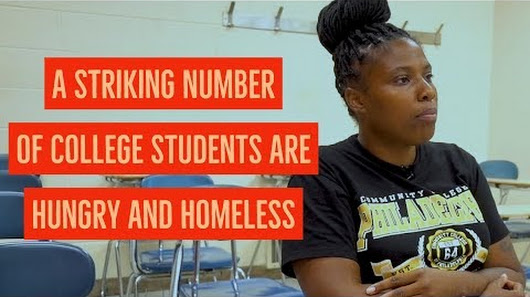Photo credit: Invisible People
Last week, Temple University and Wisconsin Hope Lab brought together more than 400 students, faculty, college presidents, student services staff and advocates to consider new strategies to reduce food insecurity and homelessness among college students in the United States.
Among the goals participants discussed were:
- Ending no-cause evictions for college students,
- Putting homeless student liaisons on all college campuses,
- Offering rent-free housing,
- Broadening student access to SNAP(food stamps), and
- Ensuring that every college makes effective and just use of its food resources.
Participants also explored strategies for effective lobbying and how best to work with college administrators to implement changes, how to operate effective campus food pantries, and how to develop supportive state policies. Researchers examined existing evidence on the prevalence of food insecurity and housing instability among various types and groups of college students and consider the best methods for deepening knowledge of hunger and homelessness on campuses. A high point of the meeting was testimony from formerly homeless or food insecure college students, who described their experiences and the transformative value of getting help to solve these problems.
Attending #RealCollege for the CUNY Urban Food Policy Institute were Institute founders Jan Poppendieck and Nicholas Freudenberg. Poppendieck, who has studied hunger, food insecurity and poverty in the United States, noted “Campuses across the country are waking up to the new college realities. Hunger and homelessness among students reflect mounting tuition, rising housing costs, and stagnating wages. I was impressed with the energy and creativity with which campuses are trying to connect students with assistance, but frustrated with the limitations on our ability to address the underlying causes.”
The importance of documenting as well as addressing student food and housing insecurity was a recurring theme in this meeting. Freudenberg observed, “Our 2011 studies on food insecurity and housing instability among CUNY students were among the first to document these important barriers to academic success. As recognition of the problem grows, I am confident that a robust movement of students, faculty, college administrators and social justice advocates can end this unacceptable burden on so many low income college students.”
